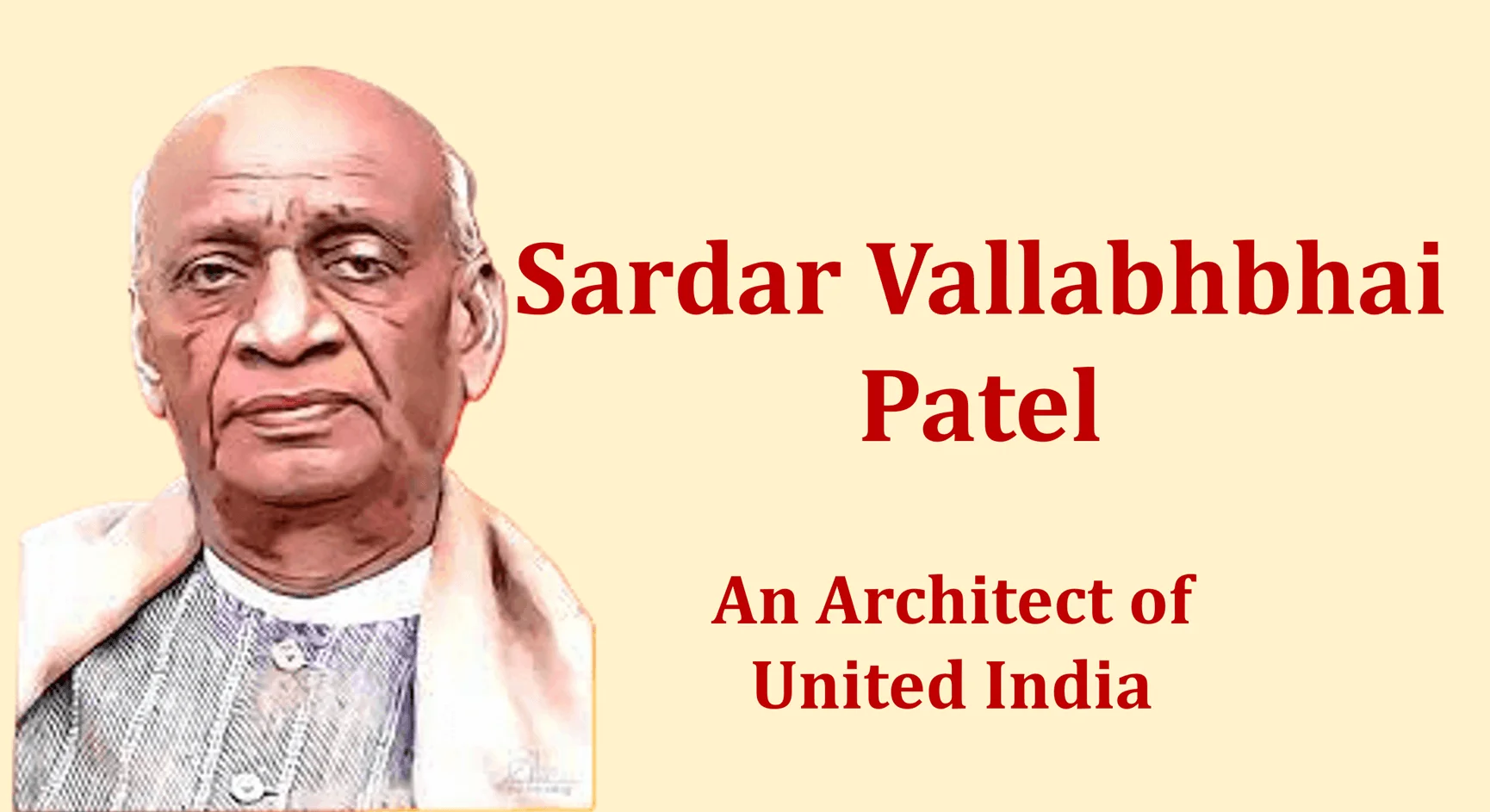


This year, as India celebrates Sardar Patel's birth anniversary, we acknowledge the role he played in shaping modern India. As the first Home Minister and Deputy Prime Minister of the country, Patel's contributions are often overlooked but his efforts in unifying the princely states and establishing the all-India services system have greatly impacted the nation's governance. Through diplomatic negotiations and strategic thinking, Patel was able to bring together more than 500 separate territories and pave the way for a united Indian nation.
Iron Man of India: Sardar Vallabhbhai Patel and His Legacy
Background
Sardar Vallabhbhai Patel, hailed as the "Iron Man of India," was a preeminent figure in the Indian independence movement and the first Home Minister and Deputy Prime Minister of the newly formed Republic of India. Born on October 31, 1875, in Nadiad, Gujarat, Patel was a lawyer by profession before he joined the Indian National Congress under the tutelage of Mahatma Gandhi.
Contributions to Indian Independence
Patel played a pivotal role in the Quit India Movement of 1942, which demanded the immediate independence of India from British colonial rule. He was arrested and imprisoned for seven years. After his release, he assisted Mahatma Gandhi in the negotiations leading to India's independence in 1947.
Unification of India
Following India's independence, Patel faced the daunting task of unifying the princely states that had existed within British India. Through diplomacy, negotiation, and sometimes force, he brought over 560 princely states under the Indian Union, creating a unified and sovereign nation.
Institutional Reforms
Patel played a crucial role in shaping the governance of India. He established the Indian Administrative Service (IAS) and the Indian Police Service (IPS), which have served as the backbone of the Indian bureaucracy. He also played a key role in the drafting of the Indian Constitution.
Legacy and Significance
Sardar Patel died on December 15, 1950, at the age of 75. He is remembered as one of the architects of modern India, whose contributions to unity, governance, and national security continue to shape the nation today. His legacy is celebrated through the annual Sardar Patel Jayanti, which is observed on his birth anniversary.
Top 5 FAQs and Answers
Q: What were Sardar Patel's main achievements? A: Unification of princely states, establishment of IAS and IPS, drafting of Indian Constitution
Q: Why was Patel known as the "Iron Man of India"? A: Due to his strong will, determination, and unwavering commitment to India's unity and independence
Q: What was Patel's relationship with Mahatma Gandhi? A: Patel was a close associate and follower of Gandhi, often called his "right-hand man"
Q: What are some of the current events related to Sardar Patel? A: Annual Sardar Patel Jayanti, efforts to preserve his legacy through museums and memorials
Q: How is Patel's legacy being honored in modern India? A: Through the erection of statues, naming of institutions and roads after him, and the celebration of his birth anniversary as a national holiday

Union Home Minister Amit Shah spoke at the inauguration of the 60th DGsP/IGsP conference in Raipur where he stated that Naxalism in India will be fully eliminated before the next conference. He also highlighted the government's efforts in strengthening the security grid and providing permanent solutions to long-standing national security challenges. Shah emphasized the importance of intelligence and collaboration with agencies to tackle drug trafficking and organized crime. He also mentioned the strengthening of India's policing framework, making it amongst the most modern globally.

In a recent Q&A session, Professor Michael Clarke addressed the impact of a leaked call between Donald Trump's envoy and Russia on peace talks. He also discussed Putin's desire for a great legacy, which has led to a lack of pragmatism. According to Clarke, approximately 4,000 main battle tanks and 30,000 pieces of armoured equipment have been destroyed in the conflict, with Russia focusing on building more complex modern tanks. Don't miss out on these insightful answers from the expert.

Following his party's disappointing performance in the recent Bihar Assembly election, politician Prashant Kishor has raised concerns about the voting results, stating that they did not align with the public sentiment he witnessed during his campaign. Despite this setback, Kishor remains determined to build a stronger political organization and continue engaging with the public in preparation for future elections. He also addressed criticisms of his role as an election strategist, reminding critics that one loss does not define his political future.

Indian government under the leadership of Prime Minister Narendra Modi has introduced four new labour codes aimed at protecting the rights and well-being of 40 crore workers across the country. Union Minister Mansukh Mandaviya has hailed the move as transformative and a major step towards ensuring the welfare of the workforce. The new codes bring in much-needed changes such as formalisation and transparency through appointment letters, and universal social security coverage for all workers including gig and platform workers.

In Uttar Pradesh's Lakhimpur Kheri, a police constable is in hot water for allegedly forging a court order to clear his name in an old case, with the intention of securing a promotion. The fabricated document surfaced during an internal investigation, prompting authorities to file a fresh case against the constable. This incident adds to the growing issue of corruption and misuse of power within the police force.

The Supreme Court has directed the formation of a Special Investigation Team (SIT) to conduct a fact-finding inquiry against Vantara, an animal rescue and rehabilitation center in Gujarat, following allegations of non-compliance with laws and acquisition of animals. The SIT, headed by former apex court judge J Chelameswar, will also look into reports of irregularities and complaints from NGOs and wildlife organizations. Vantara has assured full cooperation to the probe and reaffirmed their commitment to animal welfare.

The ongoing family feud within the Rashtriya Janata Dal (RJD) continues to escalate as three more daughters of party patriarch Lalu Prasad Yadav have left the family residence in Bihar's capital Patna. This comes just a day after another daughter, Rohini Acharya, publicly denounced the family and quit politics following the party's poor performance in the recent elections. Amidst allegations of insults and mistreatment, the saga continues to unfold within the Yadav family.

In a special lecture series in Bengaluru, RSS chief Mohan Bhagwat emphasized on the Hindu identity as a responsible and proud son of Bharat Mata. He urged the Hindu society to come together and share the message of 'Vasudhaiva Kutumbakam' with the rest of the world. Bhagwat also recalled the RSS founder and its journey of facing opposition and growth through dedication and sacrifice of its volunteers.

As the West Bengal Assembly elections near, the political battle between Bharatiya Janata Party (BJP) and Trinamool Congress (TMC) has intensified on social media. Following the BJP's victory in Bihar, the party declared its hopes to defeat TMC in Bengal on a popular platform, while TMC leader Kunal Ghosh responded with a proverb highlighting the BJP's potential failure in Bengal. Despite BJP's confidence, TMC remains unfazed and asserts their strong hold in the state.

Congress leader and Leader of Opposition in Lok Sabha, Rahul Gandhi, was criticized by BJP's Shehzad Poonawalla for going on a jungle safari in Madhya Pradesh's Satpura Tiger Reserve instead of focusing on the ongoing Bihar elections. Gandhi had earlier claimed that "vote theft" had taken place in several states, including Madhya Pradesh. BJP's Poonawalla mocked Gandhi's "priorities" and referred to him as the "Leader of Paryatan and partying."